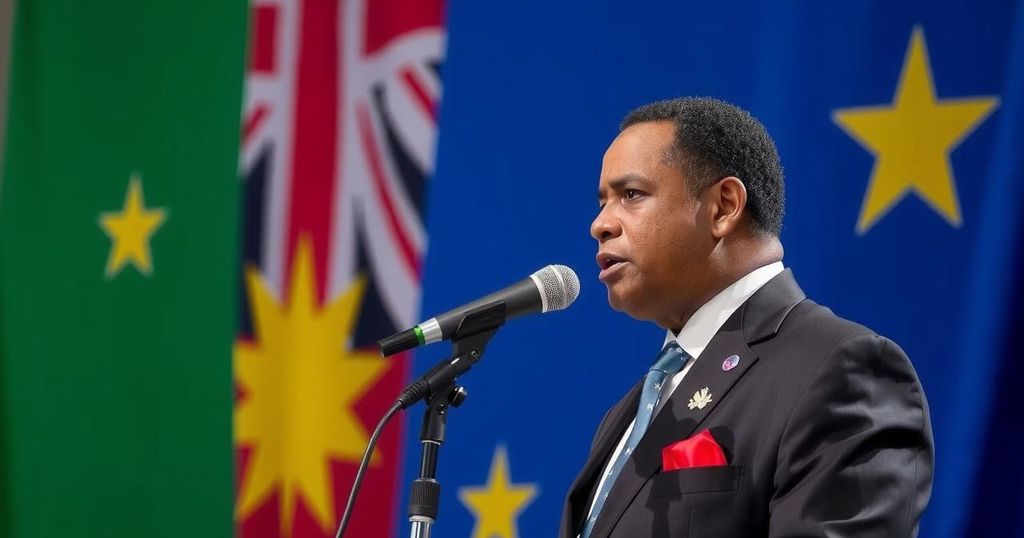Pravind Jugnauth of Mauritius conceded electoral defeat, paving the way for Navin Ramgoolam to likely return as prime minister. The elections, marked by a strong turnout of around 80%, reflected public demand for change amidst concerns over governance following a wire-tapping scandal. Ramgoolam’s Coalition, the Alliance of Change, is anticipated to form the new government, addressing economic challenges in the relatively stable democracy.
Pravind Jugnauth, the Prime Minister of Mauritius, has acknowledged his electoral defeat in the recent general elections, which took place on November 10, 2024. Despite not having the official results yet, it appears that Navin Ramgoolam, the opposition leader, is poised to reclaim the prime ministership for a third time with his Alliance of Change coalition. Prime Minister Jugnauth, who has led since 2017, remarked that the electorate opted for change, emphasizing the necessity to respect their decision while wishing success for the incoming government. The recent elections were marked by a tumultuous campaign, marred by concerns over governance following a wire-tapping scandal that revealed secret communications among political figures. Nevertheless, the electoral turnout was robust, nearing 80 percent, reflecting the populace’s engagement in a pivotal political transition. Ramgoolam, a former prime minister and a descendant of the nation’s first premier, had expressed optimistic sentiments about his coalition’s performance, alluding to a desire for liberation among the citizens. Underpinned by a mixed economy of tourism and financial services, Mauritius maintains a relatively high standard of living, though increasing issues surrounding corruption and governance loom over the political landscape. The elections occur in the context of recent diplomatic achievements, including a significant agreement with the United Kingdom concerning the Chagos Islands. Ramgoolam’s return to power could herald new policies at a time when the nation seeks to address economic challenges amid ongoing stability and growth.
The political landscape of Mauritius has historically been shaped by the rivalry between dominant political families, notably the Jugnauths and the Ramgoolams. Since gaining independence in 1968, the island has enjoyed notable economic growth, chiefly in tourism and financial services. However, emerging concerns regarding governance and corruption are becoming more pronounced. The recent elections were not only a test for Prime Minister Jugnauth’s leadership but also a reflection of the electorate’s desires for change amidst rising living costs.
In conclusion, the recent admission of defeat by Prime Minister Pravind Jugnauth marks a significant political shift in Mauritius, potentially paving the way for Navin Ramgoolam to assume leadership once more. The electoral outcome, characterized by a vibrant turnout and an undercurrent of public demand for change, signals the electorate’s readiness for new governance approaches. As Mauritius navigates economic challenges, the new administration may focus on addressing long-standing issues regarding governance and corruption while ensuring stability in this prosperous democracy.
Original Source: www.seychellesnewsagency.com






